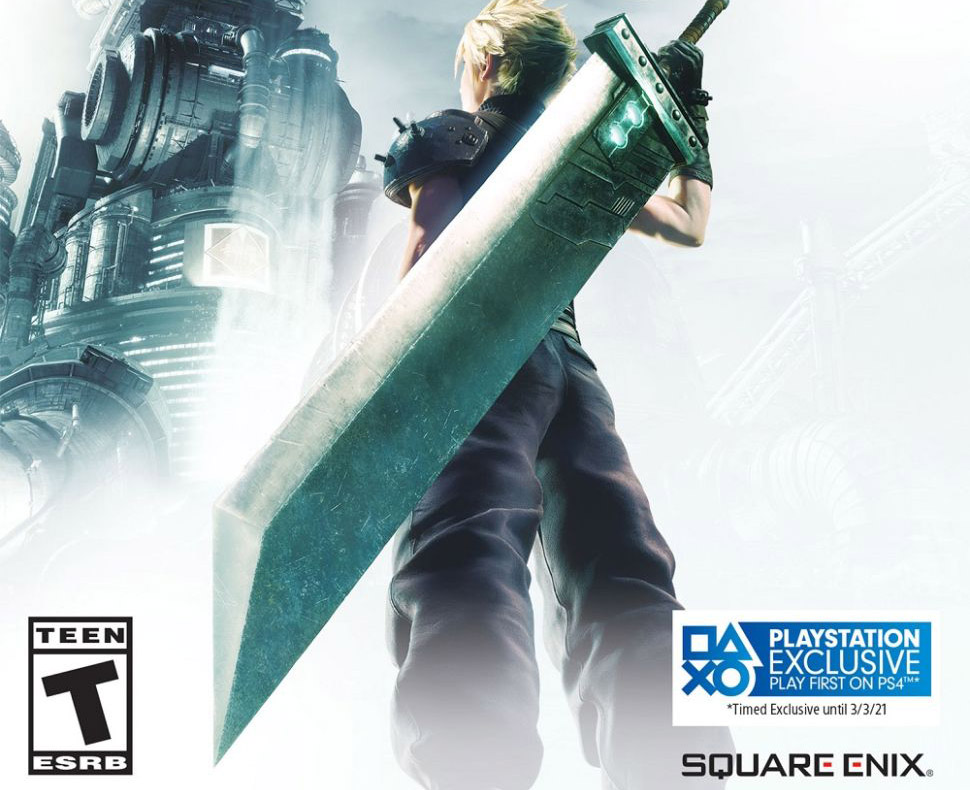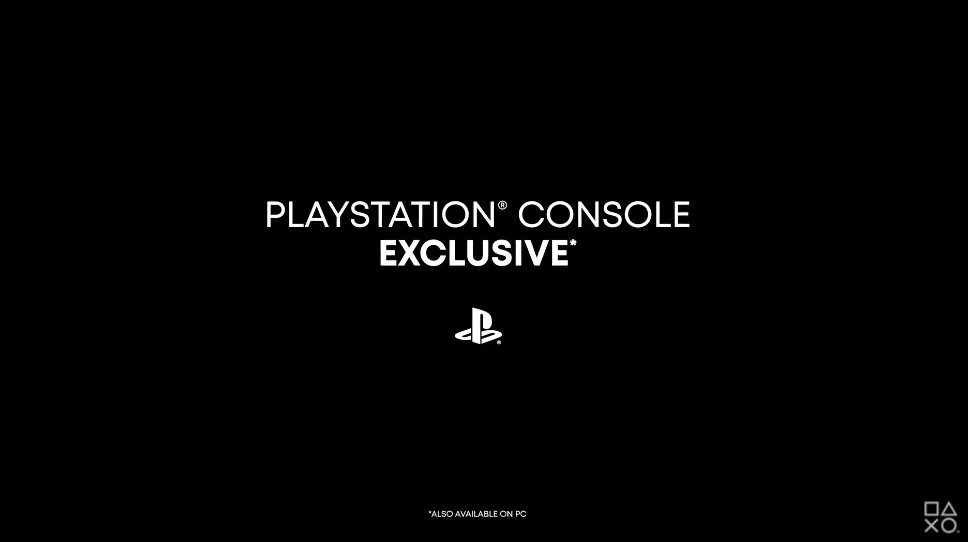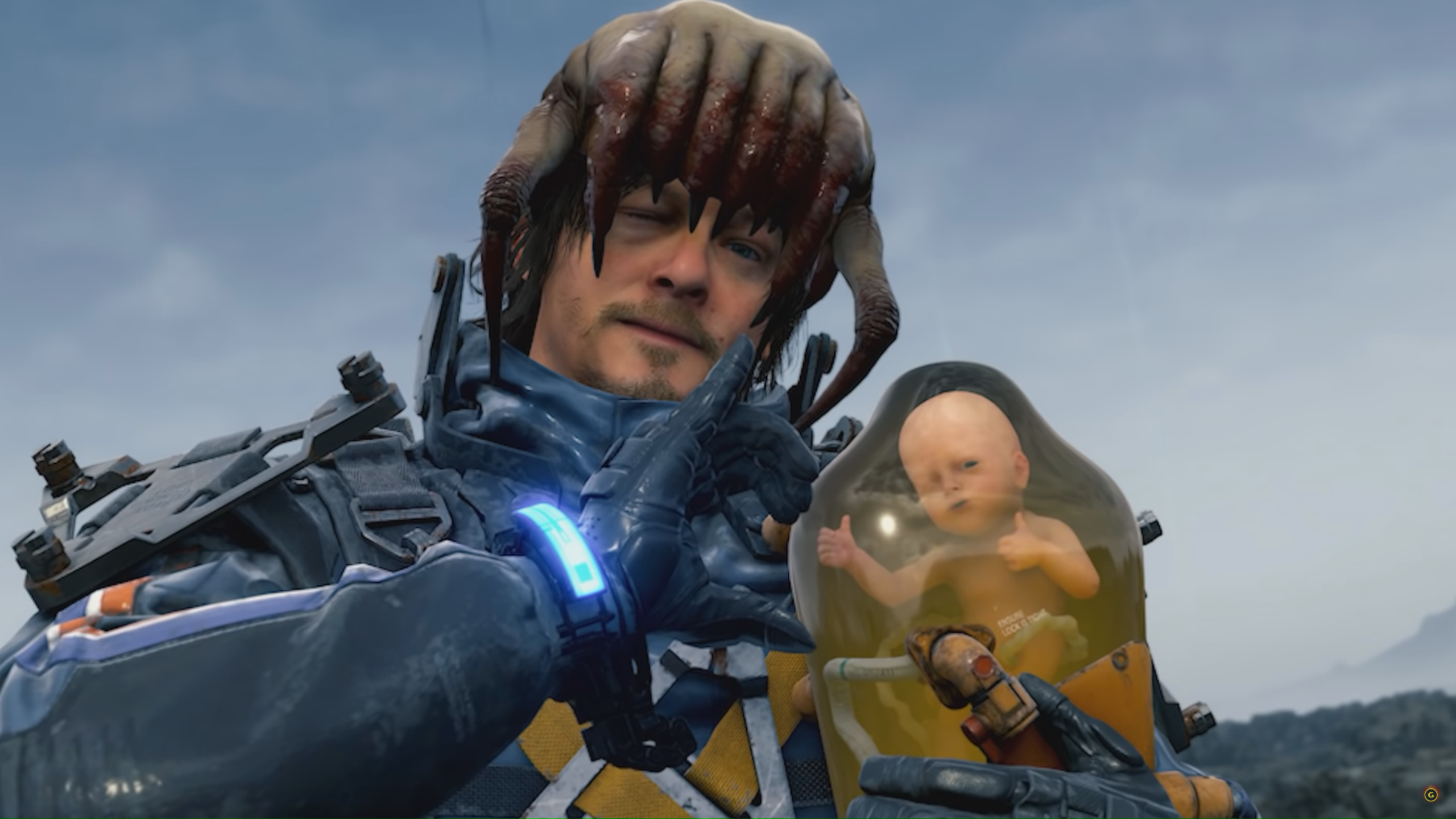Just admit that your console exclusives are coming to PC already
PC ports of the biggest games are now all but inevitable, and being cagey only ends up hurting players.

Imagine if we used the word "exclusive" in dating the same way it's used in videogame marketing. "Yeah, we're exclusive," says the Final Fantasy 7 Remake, holding hands with the PlayStation 4. Then, turning to face the camera and performing an exaggerated wink: "Which just means I can't date Xbox over there for 12 months, but after that I can date literally anyone else I want. I'm gonna be gettin' busy, if y'know what I'm sayin'!"
In the last few years, as Microsoft has committed to bringing everything Xbox to PC and even Sony has finally seen the enormous potential of porting its first-party games, "exclusive" has entirely lost its meaning. It might as well have the trailing asterisk grafted on permanently. Outside of Nintendo games, it's growing harder and harder to believe any game is truly exclusive to a console or digital store for the long haul. The word "exclusive" is now, exclusively, contortionist marketing speech used to build hype for an outdated console war and sucker in early adopters who'd otherwise be happy to wait a few months for the PC version.
This has never been more clear than during Sony's PlayStation 5 event on Wednesday, when Sony says it accidentally uploaded a trailer indicating Demon's Souls was coming to PC. Maybe Demon Souls is coming to PC someday. Maybe it isn't. But in its PR response, Sony leaned into the ambiguity of "PlayStation 5 exclusive," doing everything possible to avoid simply, directly saying: "It's not coming to PC."
With Final Fantasy 16, Square Enix tried to obfuscate reality by saying it hadn't announced plans for other platforms, even though its trailer began with "The following content is captured on PC emulating the PS5 experience" and ended with "PlayStation Console Exclusive* *Also available on PC."
Who would honestly believe Final Fantasy 16 won't come to PC, when looking at how many of the games are on Steam? Who are you trying to fool?

When you have to use an asterisk, you've already made a decision that prioritizes the brand over the audience. After years of E3 conferences and corporate blog posts, game fans now take this kind of language for granted. The twisted logic of "I haven't announced it, so it isn't happening" even though it's definitely happening is normal. But it doesn't have to be this way.
At any time, videogame marketers could choose to embrace honesty, clarity, and natural language. Instead of "timed exclusive," they could say "We're going to put our game on PC in 12 months." And they could stop writing and signing deals that prohibit disclosing that information.
Keep up to date with the most important stories and the best deals, as picked by the PC Gamer team.
And at any time, they could choose to admit when decisions have been made far in advance—"It's coming to PlayStation first, but we're planning a PC port afterward"—and also when they haven't. Can you imagine how refreshing it would be for a triple-A publisher to say "We haven't decided yet if we're going to port this game to PC," and to actually believe them?
Announcing PC ports ahead of time won't stop consoles from selling, and it won't even stop the most eager fans from buying games twice. Heck, I've seen plenty of people just this week planning to double dip on Spelunky 2, which is coming out on PC just two weeks after PS4.

By continuing to play dumb about their plans for future PC ports, publishers make it hard to see anything they say as genuine. Look at Death Stranding, which was presented for years as a PlayStation exclusive, right up until a week before its console launch. By that point, Sony had probably raked in almost all the pre-orders it was going to get. And that was still more forthcoming than usual.
Nintendo is unique in that it still builds games around the special capabilities of its hardware. Sony and Microsoft, meanwhile, are essentially making powerful, compact PCs, and the games for their systems are increasingly too expensive to isolate on one platform. Sony itself said last month that the company "will explore expanding our 1st party titles to the PC platform," making it publicly clear that more is on the way. We all know they stand to make millions more dollars by releasing those games on PC, and the more inevitable those PC ports are, the sleazier it becomes to tempt the most eager fans into buying a console when a PC version is already in planning. There's a huge well of player goodwill out there for any company that speaks clearly, openly, and honestly about its PC port plans from the beginning. They should try taking a drink.

Wes has been covering games and hardware for more than 10 years, first at tech sites like The Wirecutter and Tested before joining the PC Gamer team in 2014. Wes plays a little bit of everything, but he'll always jump at the chance to cover emulation and Japanese games.
When he's not obsessively optimizing and re-optimizing a tangle of conveyor belts in Satisfactory (it's really becoming a problem), he's probably playing a 20-year-old Final Fantasy or some opaque ASCII roguelike. With a focus on writing and editing features, he seeks out personal stories and in-depth histories from the corners of PC gaming and its niche communities. 50% pizza by volume (deep dish, to be specific).

